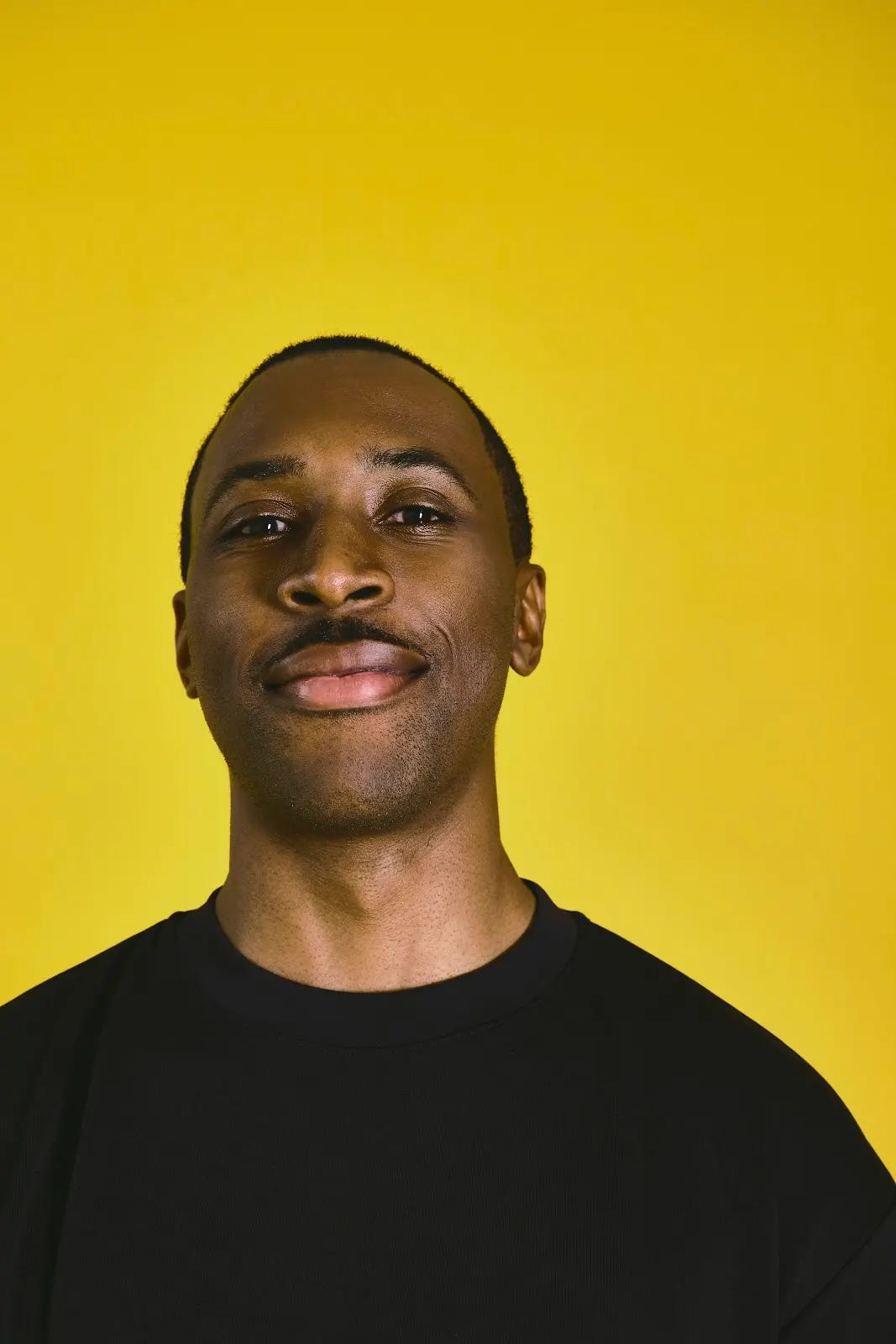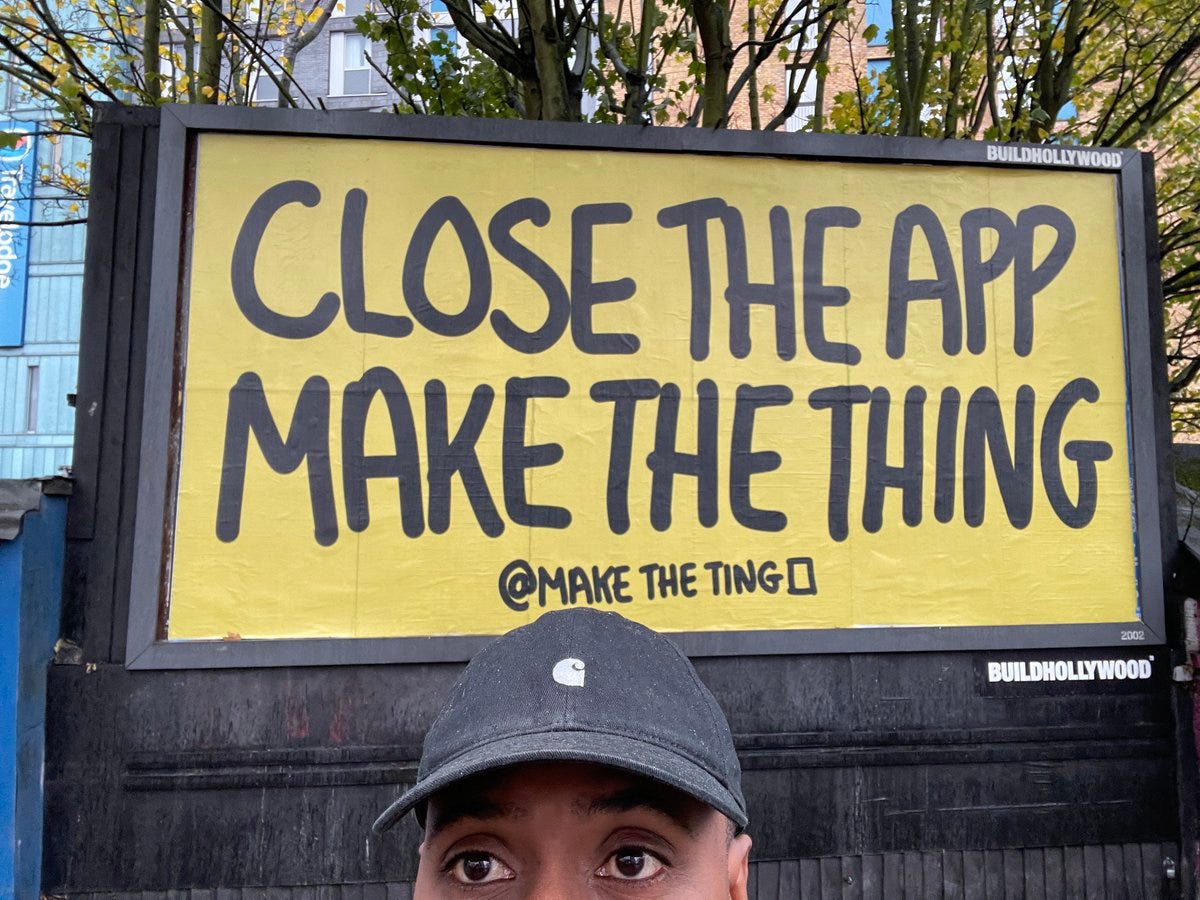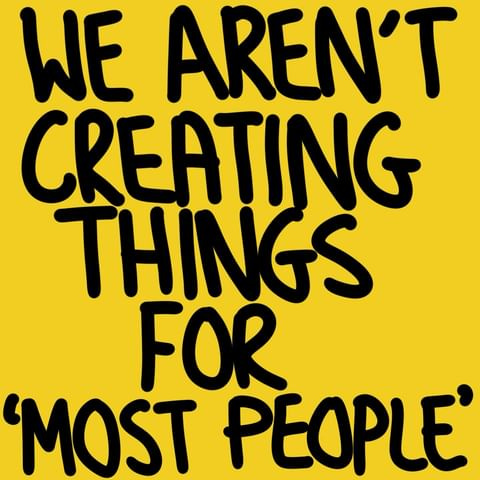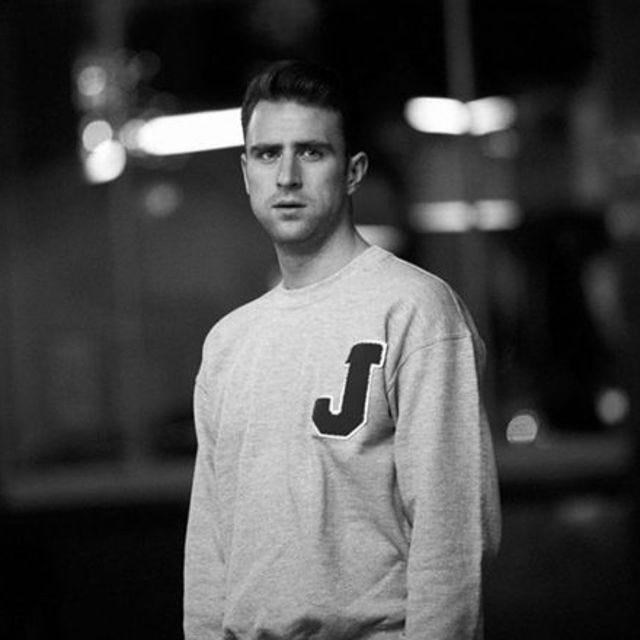Herb Sundays 129: Elijah
The UK dj/writer waxes deep. "We’ve got a lot of great musicians here and a unique way of putting things together I wish we just celebrated it more”
Herb Sundays 129: Elijah
Apple Music, Spotify,
Art by Michael Cina
“It’s all uk. From different eras. I’ve been vocal online recently about how our platforms here in the uk don’t have enough of a commitment to amplifying local voices and sounds. Our radio is so rooted in American commercial hip hop and rnb nostalgia our artists here sample early 2000s music just to be in with the chance of being played. It’s a bizarre situation I really want to change.
We’ve got a lot of great musicians here and a unique way of putting things together I wish we just celebrated it more” - Elijah
Elijah is a Writer and DJ with 15 years deep in the independent music and arts sector in London, spanning artist and label management, event production, and creative direction. He writes about creative work on instagram with a project called 'Yellow Squares' that has developed into visual installations, an album, a forthcoming book and a lecture series that has had editions all over the world. He is a contributor to The Guardian, co-founded the influential Grime record label Butterz (2010-2021) and held a residency on Rinse FM from 2008-2014.

Elijah (or as his handle @eli1ah) is a rare voice of reason in the independent music landscape. Most people who know the score tend to shy away from sharing the harsh truths of making it in music, lest they be deemed a hater or gatekeeper, but the Yellow Squares offer an important series of mantras, or a sensible, contemporary counterpoint that other UK innovation, the Oblique Strategies. The subcultures of Dance music are a crossroads between past and present, idealism and escapism, but then again, perhaps it always has been.
summed up the moment for Pitchfork this week:“I suspect the enthusiasm for hit em—even if it is confined to a tiny circle of experimental connoisseurs, Ableton geeks, and online nerds—speaks to a subconscious wish for a radical new style to flip our collective wigs, a sound that might supply the same kind of rush that footwork did, or dubstep, or jungle, the first time you heard it. A sound that you struggle to process. A sound that feels like a dream made real....Musically speaking, the dance and electronic music scenes today look more or less like business as usual. Lineups aren’t much different from what they were five years ago....The best thing about electronic music at the midpoint of the 2020s is that there is no center, no norm, no standard; everything is up for grabs.”
While Sherburne's missive is mainly formal or aesthetic in focus, there’s also the need to talk about economics and other realities. Enter Elijah, Someone with enough experience to be trusted, enough success to be listened to, but still rooted on earth, a working professor. Elijah antagonizes the more rote mechanisms of the industry we all deem as immutable: Radio, press, and yes, even labels are held in doubt as logical outlets for all artists. However, he's not looking to pick fights for the sake of it, he wants more for the music, more for young people, and more for the UK. His current rally cry to get UK radio back on track, which is damn admirable. His excellent playlist for this newsletter is a love letter to this powerful innovative culture.
In thinking about Elijah and his useful wisdom, I was trying to remember where, if anywhere, I have seen a critique of the culture that was resonant. Dance music press (which has been UK-led often) tended to throw the "!" on anything they were hyped about, almost trying to bring the experience of the music home when clubs and cameras didn’t mix. The UK mags I hoovered up in high school and college (DJ, Mixmag, Jockey Slut, The Face, Sleazenation, Dazed, etc.) conjured fantastic worlds abroad. For a spell pre-Millenium even US publications like SPIN were in on the action. Eric Deines (Secretly Group /
) recalled to me recently how, landlocked in Indiana “i remembered being jr/sr year and reading a SPIN article about these trustafarian trance shows in the jungles of mexico or such and feeling so trapped by age and the endless cornfields.”Dance music was, and still largely is, about teleportation, Boiler Room being the most vivacious version, not just a lonely DJ in a booth, but both the DJ and the party held in the same frame. The product was an incredible Trompe-l'œil for the culture that would have lasting effects on what “clubbing” meant in the ‘20s. The Boiler Room-ification (h/t
via ), especially on pandemic youths, is impossible to understate as fuel for our current dance music obsession.The irony is that in its 4th decade of Techno (I think of “Alleys Of Your Mind” (1981) as year one), which was largely defined by an early techno-optimism or DIY spirit, has become shockingly the most conservative of spaces, fighting most innovations. Many dance pioneers have been wise to reject tech face first, understanding that exploitation was de rigueur in all spaces, as we now have seen. Also in flux is the idea of success as an ultimate identifier, as opposed to the perceived concept of credibility or talent of yore. To be fair, this is now true across all industries, but while the private jet photo is nothing new in dance music, it is now largely normalized and lauded by fans. The demands for a return to “real” DJ’ing aren’t new (we’ve gone through: digital is bad, CDJS are bad, the ‘sync button’ is bad) and remain a constant din, but ones that have largely zero influence. Time marches on.
I’m not afraid of real DJing going away any time soon; in fact, there are more fans of DJ culture than there ever have been. Elijah is an important voice as he respects the tenets of yore, but being the person he is, often flips the refrains of the heads on their head, like by asking everyone who loves music to become a DJ. It’s easy to assume there are “too many DJs,’ but Elijah sees like like how we can make people like dance music more deeply by disconnecting the idea of DJing (crowds, fame, etc) from just “collecting and playing music” more akin to going from loving to eat to learning how to cook. A pleasure principle, not a judgmental stance.
I’ve covered new-era types of curators including
(Herb 87) and Margeaux/Marg.Mp3 (Herb 92) who I think are important in explaining music and music culture to new generations. I count Elijah in this cohort, but someone more explicitly focused on helping would-be artists or industry types learn. He’s like a lifeguard for a new generation, brave enough to break fourth wall, but wise enough to know that you need a little Kayfabe now and then.Thinking of how music permeates the culture, one can always look to film. In listening to Elijah’s podcast interviews, some cautionary tales included, I also remembered that it has been ten years since the French film Eden (posted in full), written and directed by Mia Hansen-Løve, which I caught in Toronto in 2015. Eden is now even hard to find via Google, ravaged by the SEO of its title amongst other films from the mid-decade.
Not counting the immortal bio pic and Herb classic 24 Hour Party People (2002), there have been more joyful UK club romancers like Human Traffic (1999) (which I saw both in London and in Royal Oak, Mich at the now defunct Main Art Theatre) which reflects how integral dance music is to British life (see also: Trainspotting). The closest to an American equivalent was Go (1999), a “one night in the life of these teens” type film led by the great Canadian actor Sarah Polley (Canadians way more formally ingested Dance music than us in my opinion) which was dissected by Herb 53 W. David Marx recently. Then, a fallow period (please remind me what I’m missing), followed by the post-EDM boom, We Are Your Friends (2015), a Zac Efron-led project (which counts Herb 64
as a DJ consultant) aimed to find an 8 Mile narrative to the music. It appears we’re gearing up for a third wave of rave movies, but these likely won’t be tied to an imagined Chicago/Detroit/Berlin/London past, Rave has left the origin story, for better or worse.Eden travels in a reality of dance music that hits much closer to home for me. The film tracks a young man and his peers in mid-90s Paris seeking global recognition in the House scene. The closest parallel I could make is Challengers (2024), where artists/athletes start as peers, and something changes their fate, and you see the same people coming up or coming down your career. That and banging soundtracks. Eden was loosely marketed to American audiences as a Daft Punk film, given their inclusion as characters and in song, but they are used more as a footnote or a specter of the winds of change. You can work your hardest, but someone else will speed by you for reasons unknown. The film is grounded in a painful realism, the reality of life passing you by as you rave/chase your dreams, likely because it's based on the true story of Hansen-Løve’s real-life brother and his experiences in the scene. When interviewed, he had this to say:
“‘I think it is a question of how much ambition you have. In all honesty, I don’t think I ever had as much ambition as them [Daft Punk]. To be successful you have to project yourself into the future. What will happen in five or ten years? They had a plan, and I had no plans at all. My only plan was to party, which was fun, but it became a problem’… I ask Sven whether or not he considers Eden a morality tale of sorts? A lesson in the importance of determination, foresight, and perseverance. He pauses for a second, ‘No. I don’t think there is a lesson in it. It’s just a story.”’
Elijah’s talk from FWB Fest this past august:
My own experiences in Dance Music as a participant, around 30 years, are interesting to reminisce on. There are a few dozen memorable DJ sets, endless hours of joyous listening, but there are also times that have been marked by immense sadness. While I'm aware the world has changed and the music is more normalized, I can't help but recall the savagery the music scene and its excesses had on the health, happiness, and relationships of my peers in it. You could argue that young people would find these pitfalls in any place they land, but this one has a special velocity to it.
So why do it at all? Well obviously, the music, that’s a given. But as cliché as it is, its the people, the wild, exciting nonconformists that are drawn to the flame. This weekend news spread of the passing of Jackmaster at age 38, one of those rare people, and one of those DJs. Controversial, full of life, someone you’d only find in this corner of the world, a UK original.
Elijah wants more from the scene, because its given us so much, and he wants people to get into it for the right reasons, not for fame, but for the feeling, damn what may come. He knows there’s no substitute for hearing a new song on the radio, in a cab, or out with your friends, and he knows the next great DJ or producer, like a Jackmaster, is just a kid waiting to hear the song that stokes the fire. This is a local affair after all.










Great read, great discovery - thanks for the great work 🖤
"Not counting the immortal bio pic.... The closest to an American equivalent was Go (1999)... Then, a fallow period (please remind me what I’m missing)": The 2010 era Speaking In Code docu-film by Amy Grill. Not a true narrative movie but it is a personal story from the perspective of someone following jetset techno culture at the time